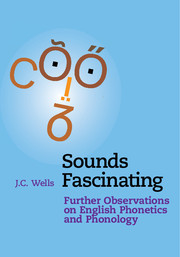15 - Accents
from PART III - APPLYING PHONETICS
Published online by Cambridge University Press: 05 September 2016
Summary
Shadow of Death
As a teenager I discovered a useful trick to stave off boredom when sitting through dull sermons: mentally transcribe what was being said into shorthand, or translate it mentally into another language.
Once I learnt phonetics, I could extend this ploy by listening carefully to how what was said was said and perhaps transcribing it phonetically in my mind.
So when I attended a Montserratian wake for my partner's aunt, who had died at the age of 96, that is what I found myself doing. The wake is known as a nine-night, because it takes place nine nights after the death of the person being mourned. It is held in the house where the deceased lived, and consists of a religious part (prayers, hymn-singing, comforting the family members) followed by a party with food, drink, and increasingly animated conversation continuing into the small hours of the morning.
The religious part was led on this occasion was led by a West Indian lady, presumably a Pentecostalist, whose oral technique consisted largely of slow shouting, with a lot of repetition. (So different from my late father's quiet and thoughtful Anglican mode of public prayer.)
Tiring of the repetitive content, I started listening to her English pronunciation, and was struck by an unusual intrusive r, in the phrase which you will recognize as coming from the 23rd Psalm, the valley of the shadow of death. Repeatedly she said di ˈvali ə di ˈʃadər av ˈdet.
If you reduce the final unstressed GOAT vowel in words such as shadow to ə, as happens in many non-standard accents, then in non-rhotic accents intrusive r is likely to result.
This reduction also leads to uncertainty in spelling for the not-too-literate (since, e.g., pillow and pillar are now homophones.) A case in point was Dickens's Mr Wackford Squeers, headmaster of Dotheboys Hall in Nicholas Nickleby, who liked to impart the correct spelling of W-I-N-D-E-R [sic] by the practical method of getting the boys to clean them.
An Epiphany
One of my friends on the social media, an accountant from Birmingham, told me she had had what is nowadays known as an ‘epiphany’: a sudden realization. She mentioned that she was ‘truly shocked’ that so many people seem to think there's a difference between the u in put and the u in cut.
- Type
- Chapter
- Information
- Sounds FascinatingFurther Observations on English Phonetics and Phonology, pp. 157 - 172Publisher: Cambridge University PressPrint publication year: 2016



